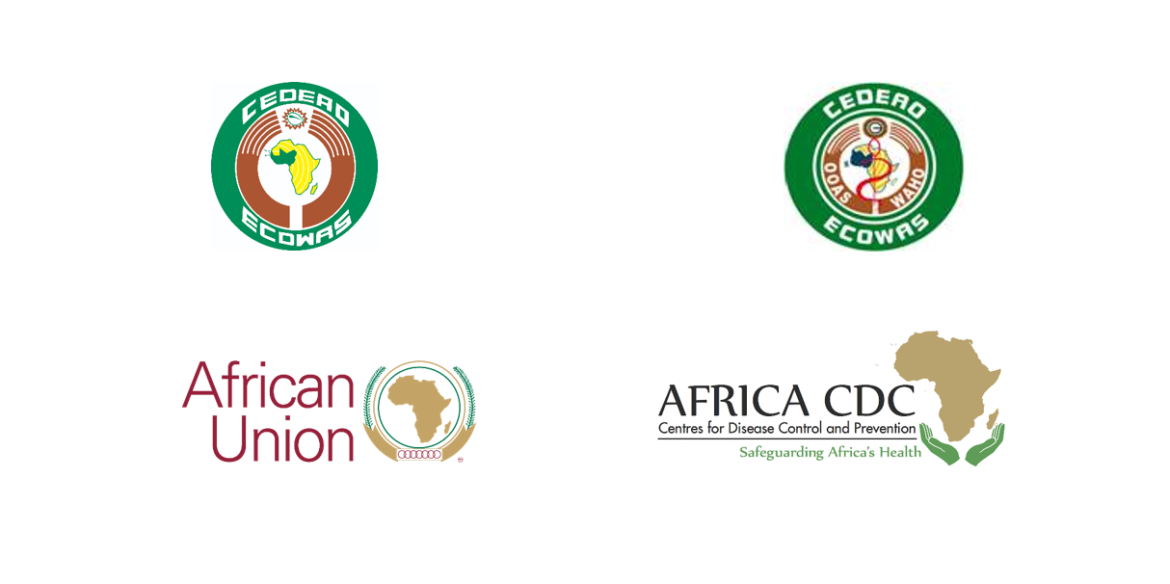By Iyemah David
Top public health experts and regional stakeholders have called for stronger investment in community engagement, sustainable risk communication structures, and coordinated multisectoral strategies to combat Mpox across West Africa.
At a regional webinar hosted by the Africa CDC and the ECOWAS RCCE Network on Thursday, speakers emphasised the need for a united and inclusive response to the resurgence of Mpox.
They said that only a community-driven approach could effectively curb its spread and reduce fatalities.
Regional Incident Manager at Africa CDC, Dr Usman Shehu, said that those most vulnerable to Mpox infection included individuals with direct contact with confirmed cases.
Dr Shehu said that people with multiple sexual partners, commercial sex workers, and men who have sex with men (MSM) were also vulnerable.
“These are high-risk groups and must be prioritised in response strategies, including vaccination and behavioural interventions,” he said.
He said that Africa CDC had committed over one million dollars to support countries like Nigeria, Liberia, Sierra Leone and Côte d’Ivoire with personal protective equipment, vaccine donations, rapid response teams and health worker training.
According to him, surveillance and diagnostic capacities have been significantly strengthened.
Dr Shehu added that additional support included nutritional aid for Togo and cross-border epidemiological surveillance across Mali, Ghana, Burkina Faso, Benin, Niger, Guinea-Bissau, and The Gambia.
Dr Moussa Soumah, Director of the Health Promotion Service in Guinea, warned against the chronic underfunding of RCCE efforts.
“Whenever there are financial challenges, communication is pushed to the background. But diseases are born in the community and die in the community.
“If the community is not engaged at all stages, before, during, and after, we are only reacting, not preventing,” he said.
Dr Soumah stressed the urgent need for sustainable financing for RCCE structures, ongoing community dialogue, stronger infodemic management and the institutionalisation of community voices in policy decisions.
He also highlighted key achievements of the ECOWAS RCCE Network, such as the development of culturally sensitive communication tools and the training of focal points in Liberia, Sierra Leone, and The Gambia.
He said that the network had leveraged community radio platforms to actively engage both youth and women.
Soumah said that the ECOWAS RCCE Network had made significant investments in collaboration and capacity-building.
He said that its key activities included quarterly knowledge-sharing sessions among member states.
“Others are the establishment of a technical support committee that meets fortnightly, and the creation of a regional RCCE strategic framework to guide national communication plans, ” he said.
He said that the network had also developed culturally tailored community engagement tools and forged partnerships with civil society groups and the media for grassroots dissemination.
“Efforts are underway to further integrate RCCE with surveillance and case management, and to advance a One Health approach that bridges human, animal, and environmental health.
“We must move from reactive communication to proactive development,” he said
RCCE Technical Lead at Africa CDC and National Coordinator, Dr Modou Njai, highlighted key structural barriers across the region that continue to hamper effective Mpox response.
Dr Njai cited weak linkages between district and grassroots structures, as well as the practice of traditional leaders sending unqualified representatives to coordination meetings.
He also noted low participation of women, youth, caregivers and survivors in RCCE activities, along with widespread misinformation and stigma that deter people from seeking care
“Some communities lack even one trained communicator to go door-to-door.
“We must ensure that appropriate community voices, including survivors and local influencers, are involved in every phase of the response,” he said.
He said that persistent rumours, such as Mpox being a divine punishment or spreading through food, are harming health-seeking behaviour and must be addressed through targeted education.




